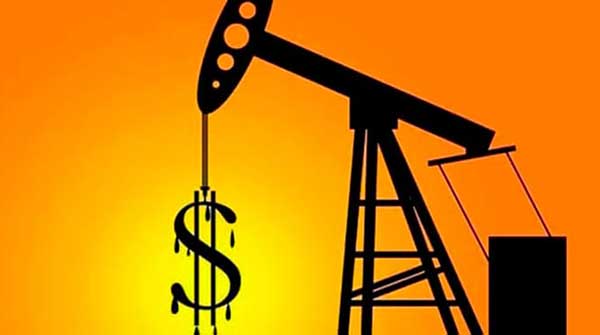 Global oil markets touched a seven-year high last week before capping gains late Friday. Prices have already gone up by more than 10 percent this year.
Global oil markets touched a seven-year high last week before capping gains late Friday. Prices have already gone up by more than 10 percent this year.
But the signals are ominous. Continued signs of robust demand have come despite:
- the COVID-19 Omicron wave;
- growing geopolitical instability in Eastern Europe and the Middle East;
- the inability of some oil-producing countries in the Organization of Petroleum Exporting Countries and its allies in the OPEC+ to meet their output quotas in full;
- lack of storage capacity.
Some analysts now project oil prices will reach triple figures later this year; others assert that even higher prices are possible.
“With low spare OPEC+ capacity, low inventories and geopolitical tensions rising,” analysts at the Bank of America said they expect to see Brent crude oil at around US$120 a barrel in mid-2022. Investment banker UBS expects crude oil demand to reach record highs this year and for Brent to trade in a range of US$80 to US$90 a barrel for now. Investment banker Morgan Stanley has raised its Brent price forecast to US$100 a barrel in the third quarter, up from its previous projection of US$90.
Escalating oil prices carry political implications, since prices at gas stations matter to voters. So most governments are paying close attention.
 The United States is no exception. Rising gas prices are increasingly worrisome for the Democrats, making it harder for them to keep control of the House and Senate in November’s elections.
The United States is no exception. Rising gas prices are increasingly worrisome for the Democrats, making it harder for them to keep control of the House and Senate in November’s elections.
The pressure is rising on President Joe Biden. His administration is working with oil-producing countries to ensure supply increases to meet demand, the White House said in a statement last week. The administration plans to continue to monitor prices in the context of global growth and hold discussions with OPEC+ countries as needed, National Security Council spokeswoman Emily Horne said.
“We continue to work with producer and consumer countries, and these steps have had real effects on prices and ultimately tools continue to remain on the table for us to address prices,” Horne said.
Biden is working hard to cool down prices. The administration has asked the Federal Trade Commission to investigate “potentially illegal conduct” by oil and gas companies. The White House has said that increases in prices at the pump even when crude oil was lower suggest anticompetitive behaviour.
The White House could also release more crude from strategic petroleum reserves. However, when the administration announced that it was releasing up to 50 million barrels in November, it failed to produce the desired result. Part of the announced volume has been released without much sustainable impact on crude prices.
The U.S. administration also announced a co-ordinated release of crude from the strategic reserves of other major oil-consuming countries, including China and Japan. Yet many observers now say the release couldn’t add much to the overall supply side of the tight global demand-supply equation. With the world requiring roughly 100 million barrels of oil a day, the release of surplus supplies didn’t add much.
And not all OPEC+ producers have much spare capacity. Only Saudi Arabia and, to some extent, the United Arab Emirates have significant excess capacity. But they seem to play their cards well to extract political concessions from the United States.
Saudi Arabia Energy Minister Prince Abdulaziz bin Salman seems unconcerned about the rise in oil prices. “I’ve always been comfortable (with the prices),” he told reporters in Dubai last week.
U.A.E., the other major stakeholder in any demand-supply balancing act, also seems unconcerned. OPEC and its allies are increasing oil production but can’t solve all the sector’s issues alone, said Suhail Al-Mazrouei, the United Arab Emirates energy minister. He warned that failure to provide sufficient investment in the oil industry may lead to future price hikes.
And with the United States increasingly dependent on these Middle Eastern oil producers to raise supplies, the Saudis must be looking to extract a political price: the recognition of Crown Prince Mohammad bin Salman. Biden has been resisting. But for how long remains to be seen.
Biden doesn’t have many options and may have to give in sooner rather than later.
Toronto-based Rashid Husain Syed is a respected energy and political analyst. The Middle East is his area of focus. As well as writing for major local and global newspapers, Rashid is also a regular speaker at major international conferences. He has been asked to provide his perspective on global energy issues by the Department of Energy in Washington and the International Energy Agency in Paris. For interview requests, click here.
The opinions expressed by our columnists and contributors are theirs alone and do not inherently or expressly reflect the views of our publication.
© Troy Media
Troy Media is an editorial content provider to media outlets and its own hosted community news outlets across Canada.


